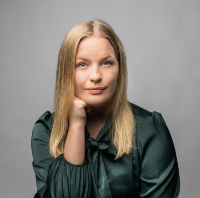Johanna Englundh: Welcome to Morningstar. To engage with companies in an effort to push them to be more sustainable is a topic that can be quite hard to grasp. What does it really mean? Well, today we will hopefully get the answer. Joris Laseur from Sustainalytics, he does just this. He spends his days engaging with different companies worldwide.
Welcome, Joris. It's great to have you here. So, you're actually the one doing the job, right? You're talking to the companies trying to get them to change the ways. Can you just start off by giving us some examples of what kind of companies you're engaging with?
Joris Laseur: Just to give you a few tangible examples, I'd like to highlight my dialogues with companies in the automotive industry. So, for some years now, we've been having meaningful dialogues about sustainability topics with Ford, Honda, LG Energy Solution, Hyundai Mobis, Tesla and Volkswagen, just to name some of the bigger names. And that's been working well. We've been talking about a range of topics, including circular battery materials, responsible mining assurance, green incentives for drivers and working conditions and even the ongoing workforce transformation in the automotive industry, considering that they used to build these internal combustion engine technology cars and now that all needs to become electric. So that takes different skills. So, it's both the environmental side and the carbon side, but also the social side on how they treat their people.
Englundh: Okay. So, among this group of companies then that you talk to, can you see any clear leaders and what are they doing?
Laseur: Yeah, there are definitely leaders and laggards in this. What's been very interesting to observe is that sustainability leadership isn't acquired overnight. So, the ones that are great at not only producing sustainable products like battery electric vehicles, but they're also getting great at producing those products in a responsible, sustainable manner. And that's hard. That's hard work for all the – even the companies that are advanced, they are – I mean, once you've made your commitments, then the real work only starts, right? So, implementing these things, getting a grip on your supply chain, treating your people well, are big investments, and there needs to be consistent effort to do that throughout time to be a sustainable stock for the investors.
Englundh: So, you mentioned that some of these companies can be seen as leaders and you're still talking to them right. But are they not already doing enough, and should you not rather focus on the laggards?
Laseur: Yeah, I think three years ago, we were wondering, shouldn't we only be engaging companies that are quite problematic and they're behind? Of course, we engage those companies because they need to have some pressure from their investors to really make commitments and start doing things more properly. But it's been very rewarding to also engage companies that are much further ahead. So, they've had commitments for many years, but then there's still – it's really hard work to implement and achieve those commitments. So that's not only selling more electric cars, but really getting a grip on your supply chain and producing responsibly and even creating a circular economy is another big topic there. It's far from ready and the investors really need to keep engaging their portfolio companies to not lose momentum and just keep building up. And the leaders are actually also quite enthusiastic to have these kinds of dialogues because they want to hear from their investors. They want to get the support from the investors to keep investing in sustainable solutions. So, they want to make sure they're on the right track and that they're directly rewarded with cheaper access to capital for their sustainability efforts. So yes, it's definitely leaders and laggards for us.
Englundh: And speaking of investors then, you touched base on this a little bit, but why is it important that people like you are engaging with these companies on these topics for investors?
Laseur: Yeah, the simple general answer to that is that for our clients being institutional investors to have a sustainable risk-adjusted return on their investments, they need the society and the planet to support economic growth. And this is super hard. And so, fixing that is super hard. People acknowledge it fortunately that it's not just by switching something overnight. I think it takes really hard work and they need the investors to be part of that journey. So sometimes it's tempting for investors to say, hey, you're not fast enough, and I'm going to prescribe what to do because you're in my portfolio and I own you. But it's been very nice to see that many investors, they've been taken on more of a learning attitude that they are – I mean, the company is now best, right? The complexity, working with thousands of suppliers, working with thousands of employees, working with – yeah, there's a lot there. And to bring things to scale in a way that's commercially working. So, it needs to be – we're talking about environmental and social sustainability, but we also need commercial economic sustainability for these companies. So, they need to get this equation right. And so, we're helping investors to have those conversations and see how they can allocate their capital best in the long term.
Englundh: So, there's a lot of things here for investors to really look into, I'm guessing. Thank you so much, Joris, for joining us today. I have learned more about engagement, and I hope that our viewers have as well. And until next time, I'm Johanna Englundh for Morningstar.









:quality(80)/cloudfront-us-east-1.images.arcpublishing.com/morningstar/Q7DQFQYMEZD7HIR6KC5R42XEDI.png)












